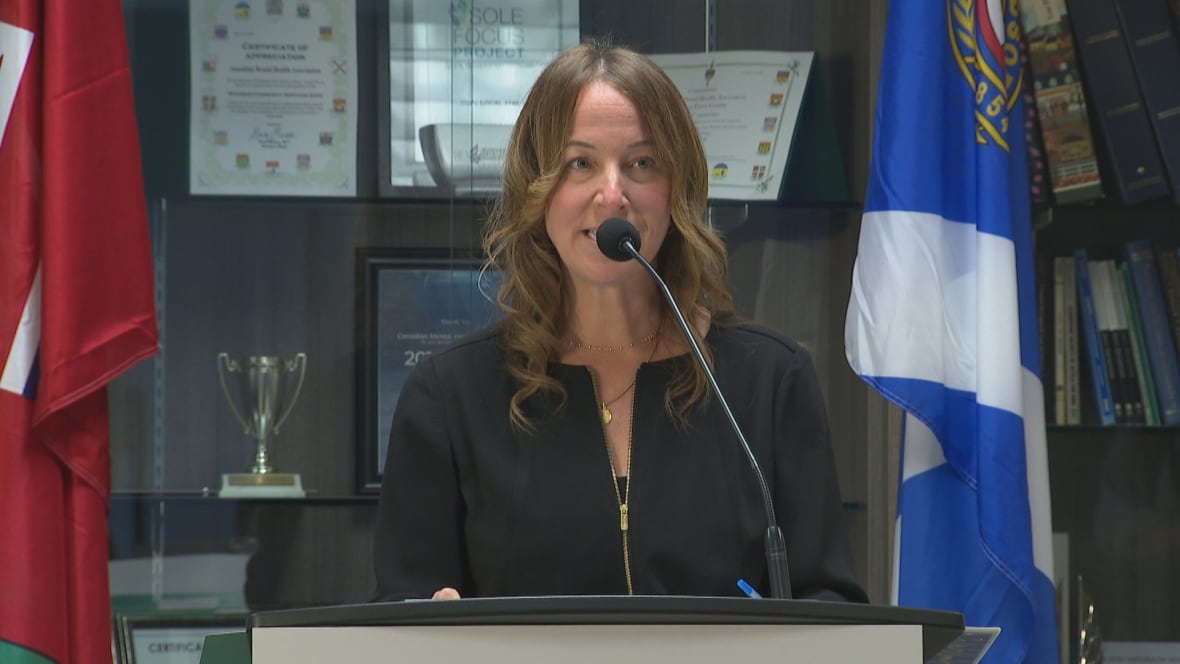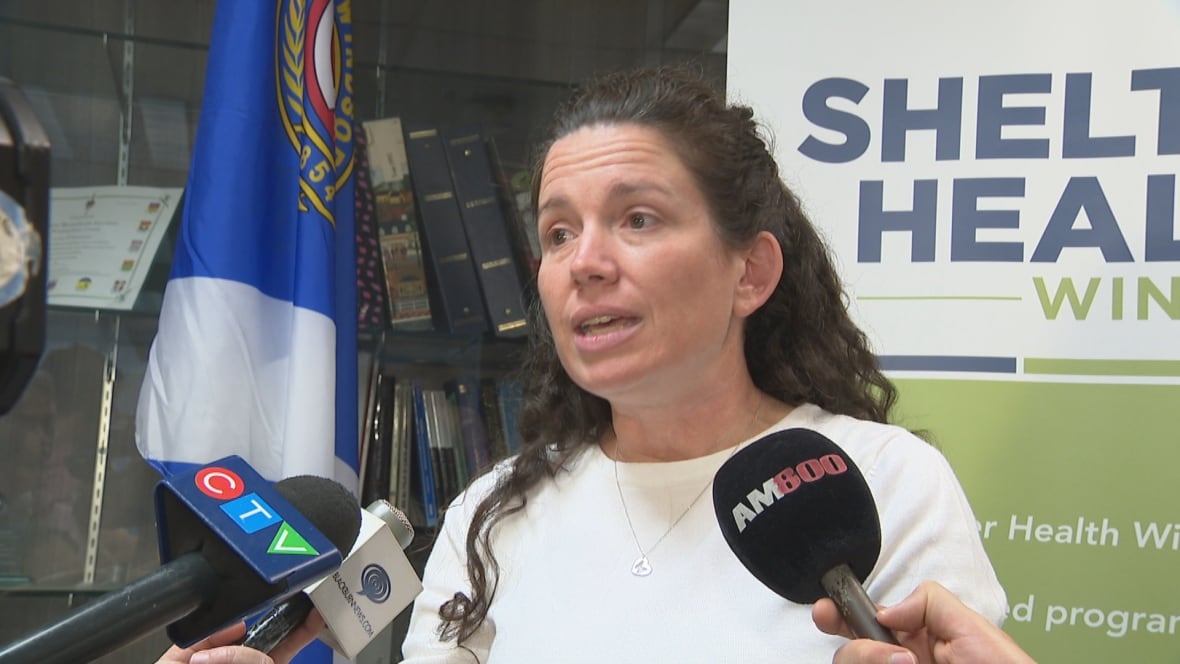Ontario announces funding for Windsor physicians providing care to the unhoused in shelters
The funding recognizes doctors under a new model for funding care in shelters
The Ontario government has committed up to $3.8 million to a physician group in Windsor that provides health-care services to people in homeless shelters in the city and to some people who have housing but require support.
The money has allowed Windsor Shelter Health Associates to expand from two physicians working a total of around nine hours a week to 11 physicians working six days a week, said medical director Jennifer Bondy.
It's also allowed them to build a team of family physicians, addiction medicine physicians, palliative care physicians, an infectious disease physician and psychiatry, Bondy said.
"I used to see a lot of wound care at the very beginning before we were funded in any way," Bondy told reporters at an event Wednesday announcing the funding, which she said began flowing at the start of 2024.
"Now we are able to regularly see people for their continuous care needs like diabetes, for example. Or if they might have a primary psychiatric diagnosis, we can see them for their schizophrenia, for example, and really make a dent in the care delivery."
Bondy began providing services to unhoused people in 2021, partly as a volunteer and partly while working for the Canadian Mental Health Association, she told CBC.
New funding model
Another physician joined a couple of years ago, she said.
Then at the start of 2024, Bondy's service received recognition under a new provincial funding model called the Homeless Shelter Alternate Payment Plan, which does not require patients to roster with physicians and which compensates physicians both for their time and for the complexity of their patients' needs, she said.
"We've been able to go from three half-day clinics a week to multiple half-day clinics across five different sites," she said.

Shelter Health serves people at the Salvation Army Men's Emergency Shelter, the Homelessness and Housing Help Hub (H4), the Welcome Centre Shelter for Women and Families, the Downtown Mission of Windsor, and Journey Home Hospice, according to a news release from the province.
It also provides services to people who have housing but require support.
Shelter Health secured Interprofessional Primary Care Team Funding through Ontario Health in the spring of 2024 to supplement the physician funding, Bondy said.
That funding flows through the Canadian Mental Health Association (CMHA), she added.
CMHA Windsor CEO Nicole Sbrocca said providing health care in shelters isn't just compassionate; it's evidence-based.
"When care meets people where they are at, we prevent crises," she said at the news conference.
"We build trust, and we contribute to healthier individuals and a stronger community."
Program getting results: mental health association CEO
Over the past fiscal year, the interprofessional team has provided more than 5,000 visits across the shelter sites, Sbrocca said.
Physicians see an average of 200 unique patients per month.
What's more, she said, there has been a reduction in emergency department use for issues that are being addressed on site in the shelters, and doctors are seeing an improvement in medication adherence.

There have also been success stories, Sbrocca said.
"We have attached nearly 200 people to primary care," she said.
"We've achieved housing for individuals, and we have made meaningful steps forward in terms of wellness and recovery on an individual basis."
Asked what the funding means to the program, Bondy told reporters it means "sustainability."
"It means that we are going to be able to continue to provide services," she said.
"We know we can future plan, and we can ensure that we have programs that are developed with our partners knowing that we're going to be able to continue to do the work that we're doing."
Last month, the Windsor Essex By-Names Prioritized List for housing showed 899 households were experiencing some form of homelessness, of which 682 households, or 75.8 per cent, were experiencing long-term or chronic homelessness, according to data provided by the City of Windsor.